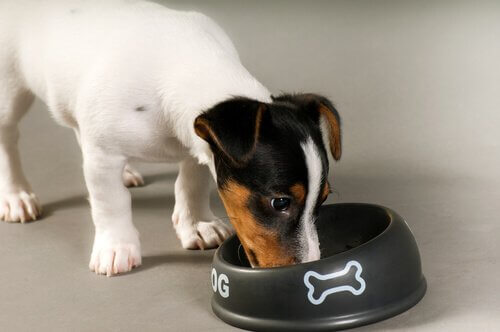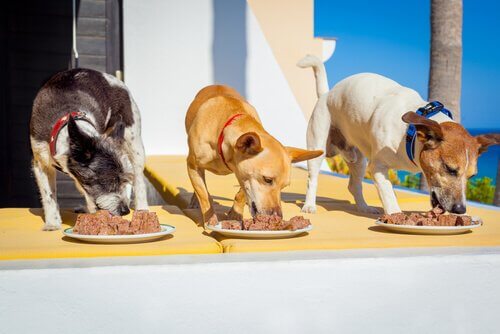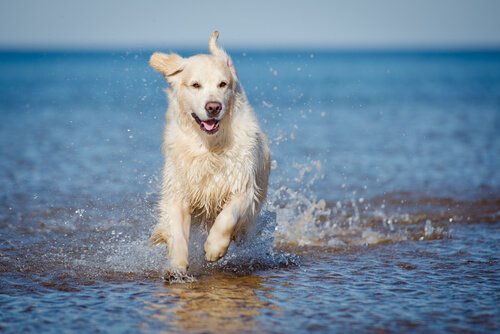Chewing: Why Dogs Don't Chew Food Well

Dogs love to eat, but sometimes it seems like they don’t even enjoy their food. They scarf their food down so quickly it seems like they’re starving. However, there are reasons why they do this. Also, in today’s article, you can look at some simple tricks that will help your dog if they’re having troubles chewing their food.
It’s important to understand your pet and know why they are the way they are. Therefore, below we’re going to focus on dogs and how they chew.
Why your dog isn’t chewing their food well

As mentioned in other articles, dogs are descendants from wolves. So, many of their behaviors have been passed down from wolves. Not chewing their food is one of them.
Wild animals focus on one thing: survival. Life in the wild can be tough. It’s full of predators that want to prevent other animals from eating. Wolves, in spite of being one of the biggest wild predators, also have to fight for survival.
Wolves travel in packs and have a leader. Also, they all eat what they hunt, but sometimes it’s not enough for the entire group. Consequently, when they get a piece of food, they devour it immediately. This is because they don’t know when they’ll eat again.
So dogs share this behavior, even though they are domesticated. Dogs are going to be fed again later that day, but it’s something that they are instinctually programmed to do.
What to do if your dog isn’t chewing their food
Don’t worry! If your dog isn’t chewing well, there are some things you can do to:
- Mix other food with their food. Although dog food should always be the primary component of their diet, eating the same meal can cause anxiety. In addition, foods such as cooked chicken, egg, sausages, or other, can provide serotonin. This is a hormone that helps prevent anxiety. This can also make your dog eat slower.
- Create a relaxed atmosphere. If your dog eats after you, it’s because they have been watching how you eat and smelling the food while it cooks. It just makes sense that as soon as they have their bowl full, they’ll shove their face right in it. Therefore, you should create a relaxed and peaceful environment that prevents the animal from becoming anxious.

- Exercise. Exercise is crucial for dogs. Although you may not believe it, if your dog isn’t chewing their food, exercise can help them. Exercise makes you feel better, have less hunger, and get rid of anxiety. The same is true for your dog. So here’s a good tip: exercise with your dog!
- Calculate their calory intake. It’s not good for your dog to consume more or fewer calories than what they expend. Maybe you’re giving your dog less food than why they should be eating. This could cause them to not chew their food and develop food anxiety. Calculate both amounts so you’re not giving your pet more or less of the amount they need.
- Take your pet to the vet. Each dog is unique. Sometimes if your dog isn’t chewing their food, they may be stressed. There could be some other issue that causes them to swallow without chewing. A veterinarian can recommend what to do or even prescribe medication for your pet.
As you can see, caring for your pet involves a lot of responsibility. You need to be willing to give your resources, time and energy to ensure the health and happiness of your dog. Even if your dog has a bad habit of not chewing food, they can still learn to eat slowly.